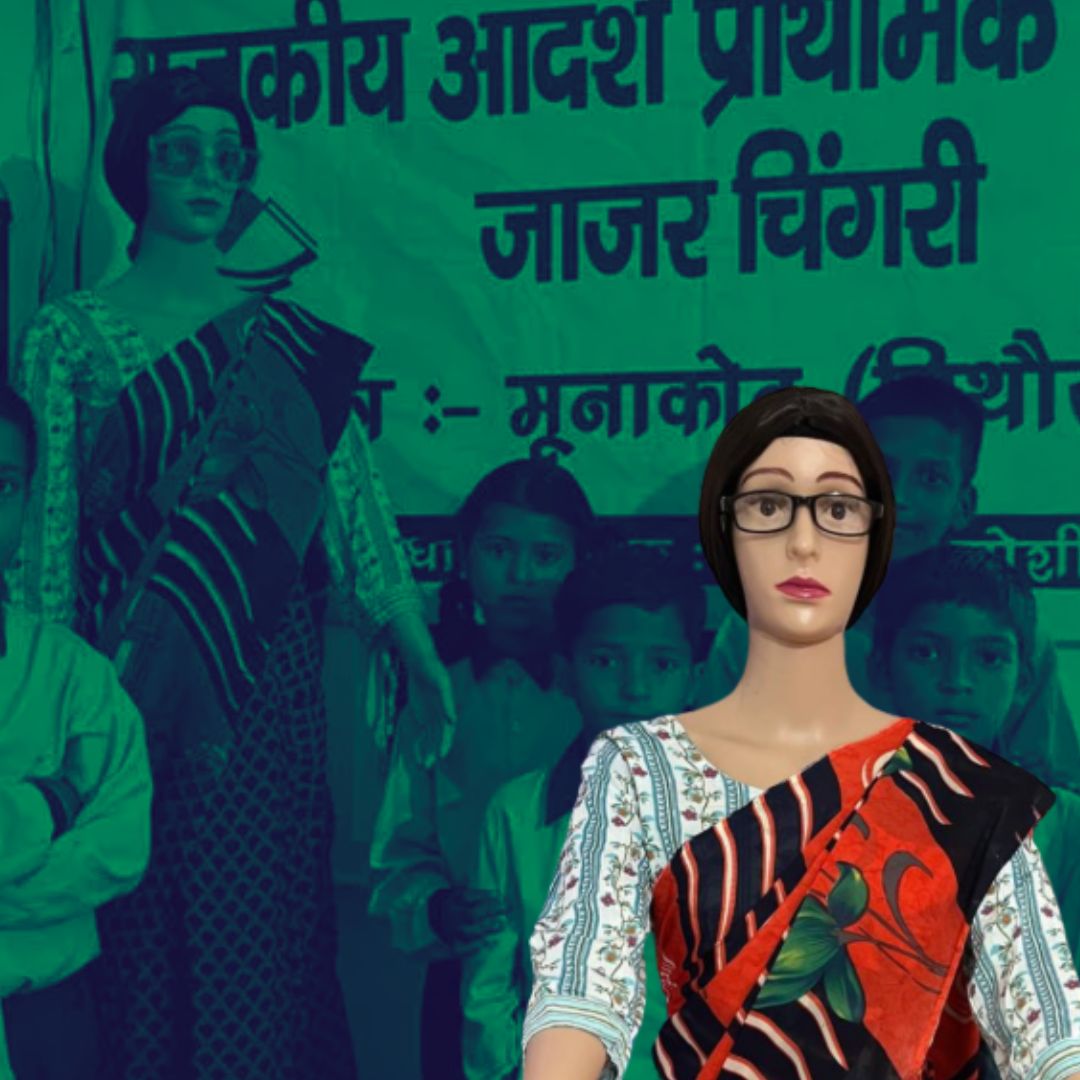In a groundbreaking initiative, students at the Jajar Chingri government primary school—a remote institution 35 km from Pithoragarh, Uttarakhand, near the Nepal border—are now learning with Eco, an AI-powered robotic teacher equipped with fifth-generation technology imported from China.
The robot, assembled and integrated by headmaster Chandra Sekhar Joshi, addresses chronic teacher shortages in the model school, which serves 52 students and five staff members.
Eco specialises in mathematics, general knowledge, and language lessons, bridging educational gaps while fostering digital literacy in a region with limited technological infrastructure. Teachers and students alike praise the innovation, calling it a “leap towards equitable education.”
A Leap Towards Digital Literacy in the Hills
Eco, a 3-foot-tall white-and-blue robot with an interactive screen, was delivered in three packages from China and assembled by Joshi at home with remote guidance from a Chinese engineer via WhatsApp. Funded through local contributions and external grants (totalling ₹4 lakh), the robot conducts lessons in Hindi and English, adapting to students’ learning speeds.
“Eco doesn’t just teach—it listens, corrects pronunciation, and even motivates children with phrases like ‘Well done!’” said Hindi teacher Prakesh Pant, highlighting its role in filling a three-year vacancy for a mathematics teacher.
Students, including 11-year-old Sunil Kumar, describe Eco as “a friend who knows everything,” citing its ability to recite poems, explain science concepts, and answer trivia questions.
Bridging Gaps and Inspiring Change
The project’s genesis lies in the school’s struggle to retain subject-specific teachers and its aspiration to prepare students for a tech-driven future. Joshi, who spent months coordinating with suppliers and troubleshooting logistics, emphasised community support: “Parents donated ₹50–100, and local leaders helped clear bureaucratic hurdles.”
English teacher Geeta Taradi noted Eco’s impact beyond academics: “Children now debate AI ethics and dream of becoming engineers. It’s reshaping their worldview.” The Uttarakhand education department has taken note, with officials calling it a “model for hill-state schools” and planning feasibility studies for replication.
The Logical Indian’s Perspective
Eco’s success in Jajar Chingri underscores the transformative potential of grassroots innovation in education. While celebrating this milestone, we must ask: Can such hyper-local solutions thrive without systemic support?
The project exemplifies how communities can harness technology to overcome geographic and resource barriers, but sustained success requires government partnerships, ethical AI frameworks, and teacher training programmes. As we champion inclusive education, let us reflect: How can India’s tech revolution prioritise empathy, ensuring no child is left behind in the digital age?












